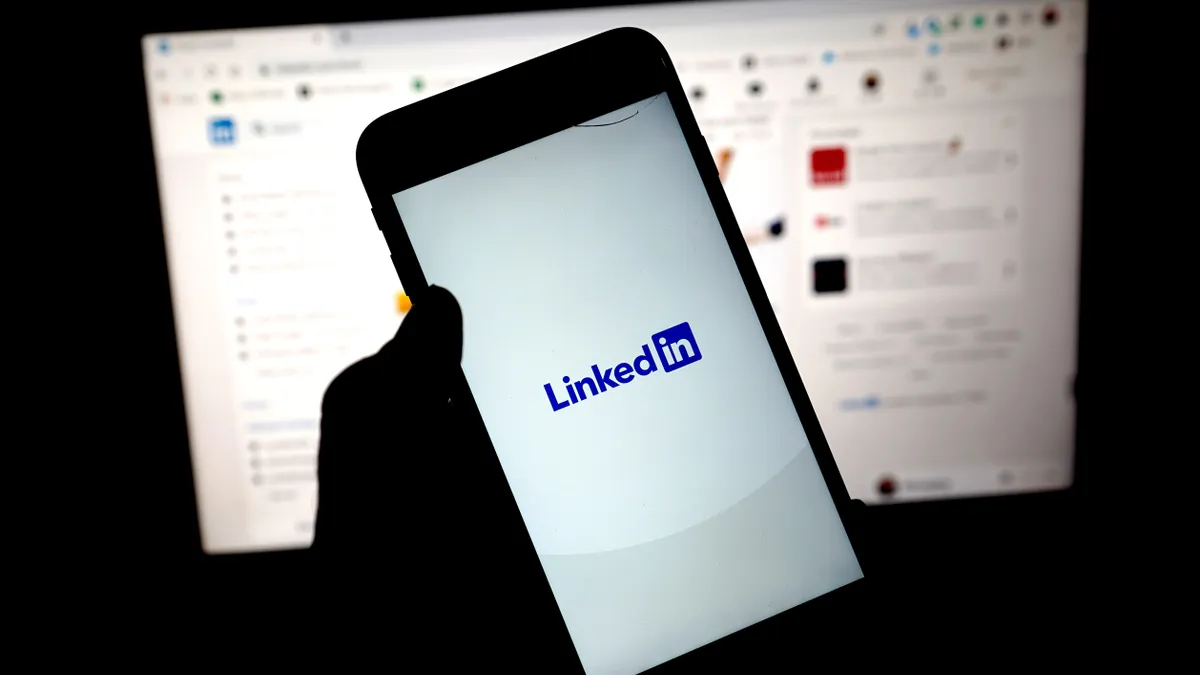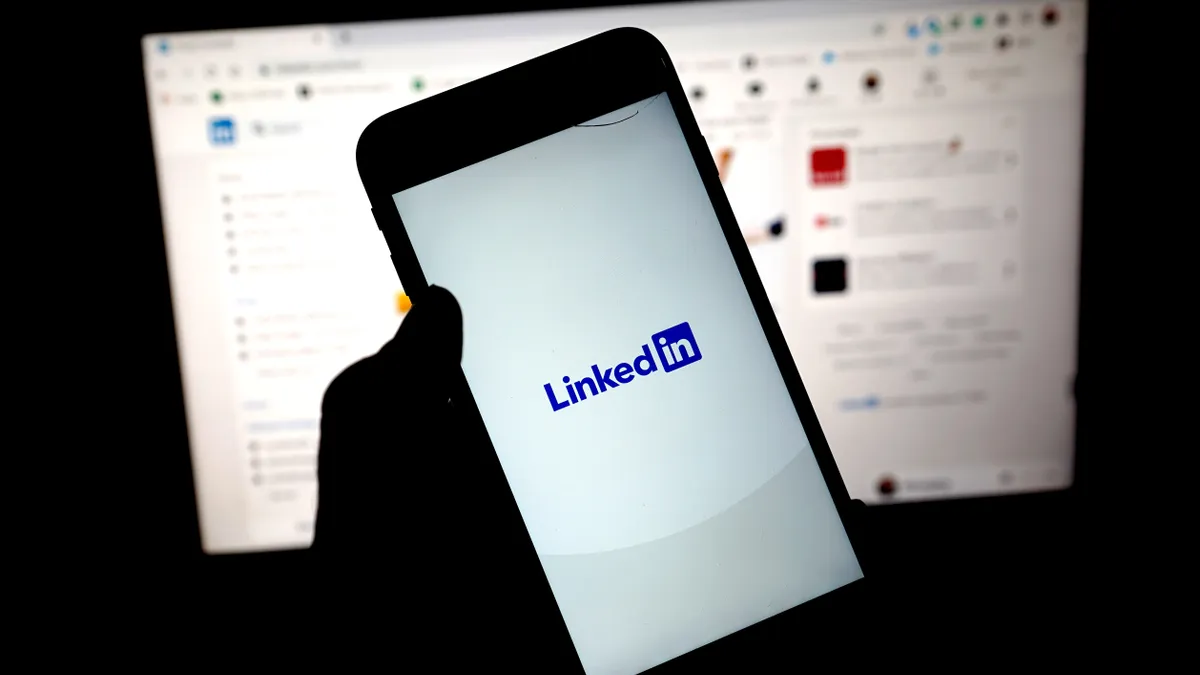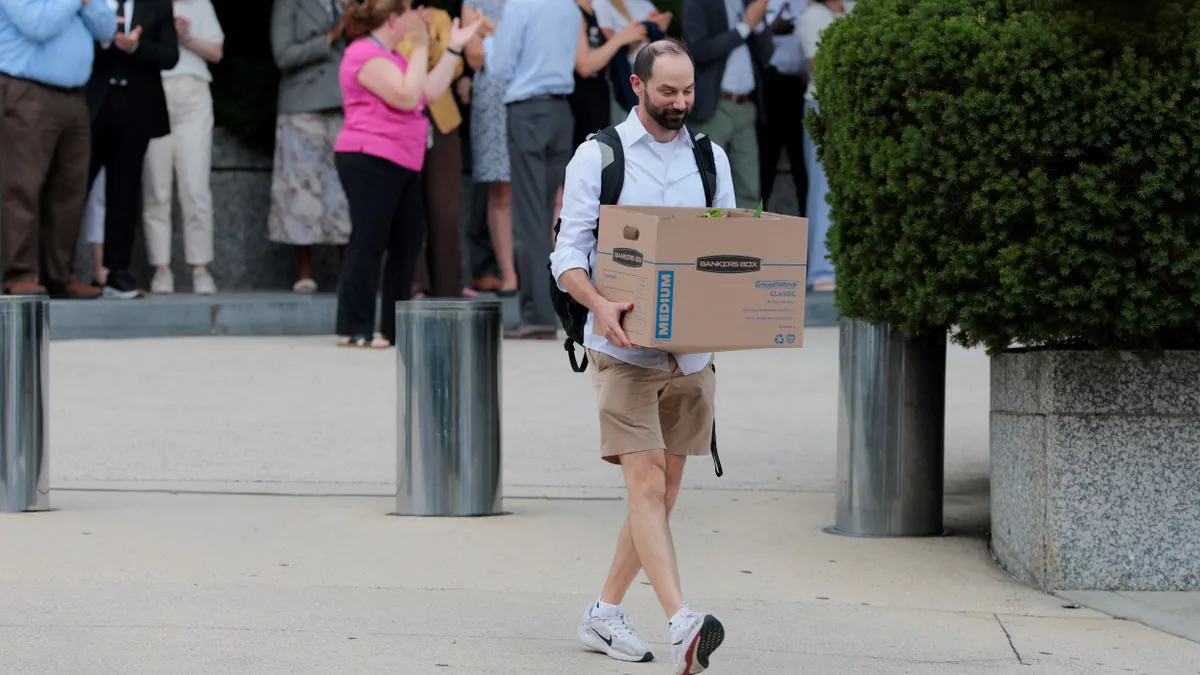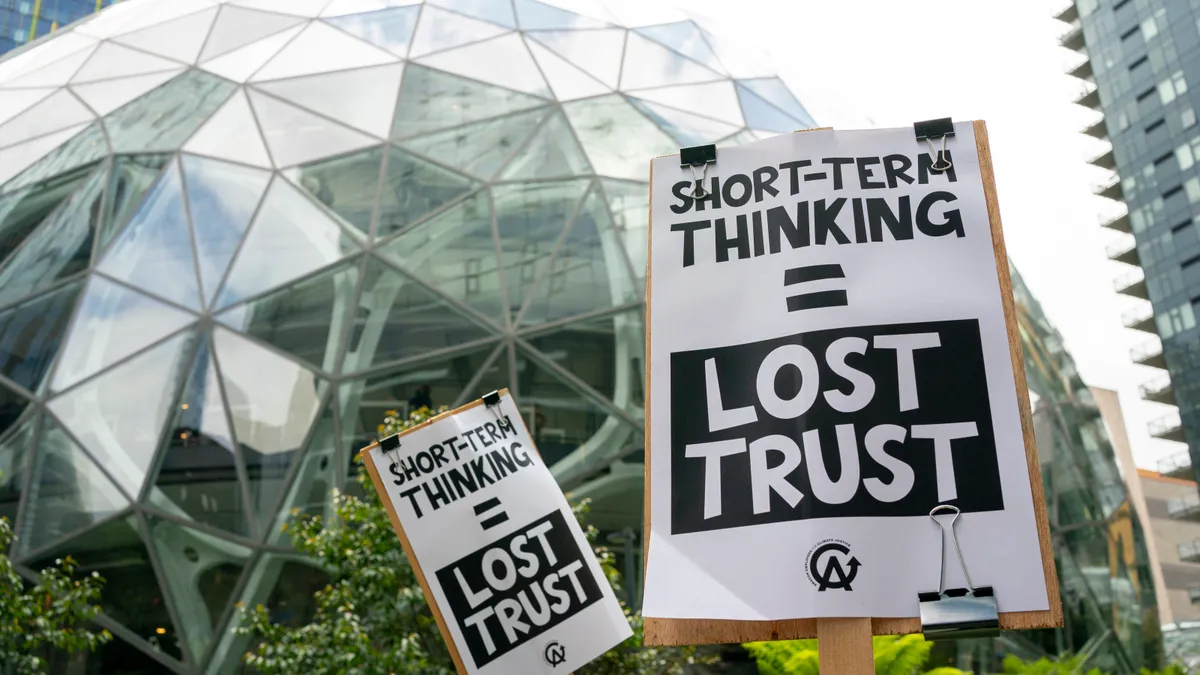With a talent shortage and rising labor demands, 2021 was a busy year for recruiters. A recent Jobvite survey found that 80% of recruiters' priorities have shifted and 40% have seen their recruiting budgets increased to manage demand for new talent.
LinkedIn has had a front-seat view of the shifting landscape, from the Great Resignation to the Great Reshuffle. Jennie Dede, head of global customer success, talent solutions at LinkedIn, spoke to HR Dive about the trends the company expects to explode in the coming year.
1. Flexibility is the new buzzword
The No. 1 takeaway? Hybrid and remote work isn't going anywhere. Plenty of companies have already adjusted in the past year and a half, so while this trend is no surprise, employees are increasingly demanding their new roles allow for flexible work arrangements, Dede said. A LinkedIn report from June found that flexibility was job seekers' fastest-growing priority.
Companies are responding. In 2020, LinkedIn saw a sharp rise in remote job postings on the site, from 1.9% in March to 9.6% by August. While this was followed by a brief dip, remote-specific postings rose even more in 2021, up to 14%, according to LinkedIn's latest data. The trend toward flexibility will include even "surprising" industries like banking and finance.
LinkedIn recently rolled out new filters in part to help job seekers find dedicated remote and hybrid work, and of the searches using those filters, 65% are for remote-only roles.
Job seekers' demand for flexibility is interesting in light of research from this summer, which found hybrid work to be the "most emotionally exhausting" arrangement.
"I think people forgot how to go to the office," Dede said. "We have to train them to be hybrid. People are going to have to learn how to deal with flexibility."
2. Hiring managers will deprioritize credentials
Gone are the days of employers demanding to see specific diplomas and degrees on job seekers' resumes, Dede said. This trend will only continue to grow.
With employers looking to hire the best talent — and diversify that pool — they're learning to take a second look at nontraditional candidates. According to data from this year, the share of managers hired without a 4-year degree increased 20% in 2021 compared to 2019, LinkedIn found. Word is getting out that degrees are not necessarily equivalent to skills.
Recruiters are also finding that skills-based hiring opens the door to underrepresented groups, helping them achieve diversity, equity and inclusion goals. It also helps with retention; employees without a 4-year degree tend to stay 34% longer than employees with a degree, LinkedIn data found.
3. Internal reskilling and training will be more important than ever
Internal mobility programs are having a moment, due to a confluence of factors: The labor market is tight, digital skills are needed and employees are more likely to stay in their jobs if they see investment in their professional development.
In fact, employees with high internal mobility stay at their companies almost two times longer, LinkedIn data found. While the average employee tenure at companies with low internal mobility is 2.9 years, it's 5.4 years at companies with high internal mobility.
HR teams working with the company to determine how to move talent around internally will become "more and more prevalent," Dede said. LinkedIn recently hired its own head of talent mobility, she added, demonstrating how much it believes in the concept.
4. DEI is no flash in the pan
When companies rushed to make new DEI commitments in the summer of 2020, some worried it would just be a brief dalliance in response to current events. But centering DEI in business strategy is here to stay.
For job seekers, companies putting DEI front and center in their approach to business is "a nonnegotiable," Dede said. "Job seekers are not tolerating companies that are not taking it seriously and really putting their money where their mouth is. It's not OK to just have a couple lines on a company page; [candidates] really want to understand what the strategy is, what the investment is, how the company is doing things differently."
In its research, LinkedIn found that 78% of job seekers on its site expect to find DEI information on a company's LinkedIn page.
When hiring at LinkedIn, Dede said, she is used to asking leadership candidates about their ways of thinking about and incorporating DEI in the past; now, she said, she routinely experiences job seekers asking her about it first. "If a company doesn't have a really solid approach that employees and leaders can respond with … a job seeker will know," she said.
5. Leading with heart will drive recruitment, retention
Lastly, a major cultural shift has taken place, partially as a result of reflection workers have done in response to the pandemic: Employees are looking for their humanity to be recognized much more than businesses have been able to get away with in the past.
"I think you're going to see people really leading with their heart first and looking for companies that will care about them as a person," Dede said.
LinkedIn partnered with Glint to release an Employee Well-Being Report this month, which showed new emphasis on this concept of "care." It found that employees who feel cared for are 3.2 times more likely to be happy at work and 3.7 times more likely to recommend working at their company to others.
"Employees want to be viewed as people, not workers," Craig Ramsay, LinkedIn's people science expert, noted in the report. Employers who offer their employees genuine support, flexibility and understanding will find themselves ahead of the pack.




















